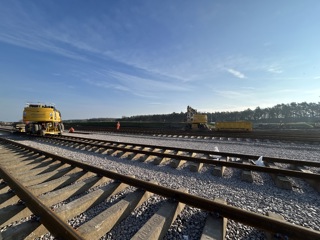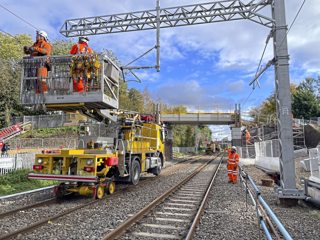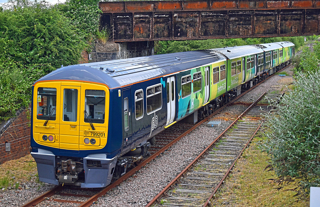Supporting the physical - and especially mental - health of railway colleagues represents an “extraordinary opportunity for our industry”, according to Network Rail Southern Region Managing Director John Halsall.
Speaking at a RAIL webinar on October 21, which was supported by the Rail Safety and Standards Board (RSSB) and titled Rail mental health and wellbeing beyond the pandemic: Keeping the momentum, Halsall said: “Poor mental health is an incredible source of unhappiness in the event that it is not recognised and treated in some form or other.
“But we can do something about it. While to completely eradicate poor mental health is impossible, to make a difference is entirely possible and is in all of our gifts.”
Halsall is also chairman of the Rail Wellbeing Alliance, which is a collective group from across the railway with the purpose of inspiring the industry to improve health and wellbeing.
He pointed to statistics that highlight the importance of focusing on mental health in the railway workplace: that you are 12-15 times more likely to have a day off work due to mental health issues than you are as a result of a lost-time accident; and that you are between two and four times more likely to take your own life than you are to be killed on the railway.
He believes that when a colleague in the industry is absent from work because of mental illness or when someone takes their own life, there is a tendency to share the tragedy with colleagues and then move on, rather than taking a similar approach to physical illness, where we would try to understand how and why the incident occurred.
Halsall was joined on the webinar by RSSB Senior Work Psychologist Joana Faustino, who supported this view: “When we think about mental wellbeing and supporting our staff… it’s not only the right thing to do but the smart thing to do, because people that are not well won’t be able to perform, innovate or give us the things we want on the railway. So, it’s the right thing to do from a human perspective, but it’s also the right thing to do from a business perspective.”
Faustino said that while we must always look at the risks involved with particular roles on the railway and assess ways of reducing workplace stress, for example, it is not always possible to remove the risk entirely.
“The railway is a safety-critical industry, so some level of stress and complex decision making will always be expected. It’s more around how we manage that and what support is available,” she told the webinar attendees.
If you missed the webinar, you can watch it back on catch-up by visiting bit.ly/RAILmentalhealthwebinar.
The Rail Wellbeing Live webinar took place on October 21.
To read the full story, see RAIL 943

















Login to comment
Comments
No comments have been made yet.